People’s Summit Kicks Off in Lima
Sydney Pead | December 9, 2014.
While negotiators squabble over the semantics of international climate policy, hundreds of people rallied in the centre of Lima today for the opening of the ‘People’s Summit’ (Cumbre de los Pueblos).
Similar events are often organised every year in parallel from the COP. They offer a space where civil society groups can discuss ideas and issues related to climate change, particularly its effect on marginalised populations of society.
Member of the People’s Summit co-ordinating committee, Justine Fautrelle said: “The event is separate from the political process of the COP where businesses and corporations shape a significant part of the discourse.”
Fautrelle says it is important to have a bottom-up approach in the push for climate justice, focusing on ambitious policies and actions at the local level to build a base for systemic change.
“The importance of this event is to see how we can converge on strategies and agreements from within our own countries, that is where real change happens.”
Dozens of organisations take part in presenting lectures, information sessions and group discussions, each falling into a number of areas ranging from scientific and environmental concerns to the social and cultural challenges of climate change.
“It is a debate that is truly transparent and inclusive. In the program, we have not restricted any country or organisation from participating and that is the challenge of creating an event that is democratic and open to all,” said Fautrelle.
The advantage the People’s Summit is that it allows for a range of voices that diversify the climate discussion and enables a holistic conversation about climate change, explains Ruth Nyamburah, social and environmental activist from the Climate Justice Assembly.
As Nyamburah explained, it is important to have, “an intersectional approach and analysis of the climate crisis which means that [you] have to analyse economic, social and cultural systems. We [the Climate Justice Assembly] focus on issues of class, race…who’s being excluded, people of colour, indigenous people and sexual orientation, not just in the environmental movement but also in the greater global movement.”
The summit will continue all week, punctuated by the World March in Defence of Mother Earth on Wednesday 10 December. Activists and protesters, a projected 15,000 individuals, will come together in the streets of Lima to send a clear message to world leaders that they need to act aggressively on climate change immediately without exploiting the people in the process.
With reporting from Sarah Brady.





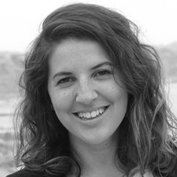
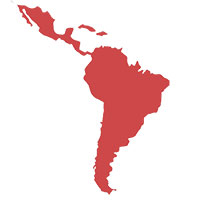
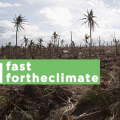
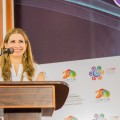
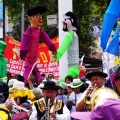



comment